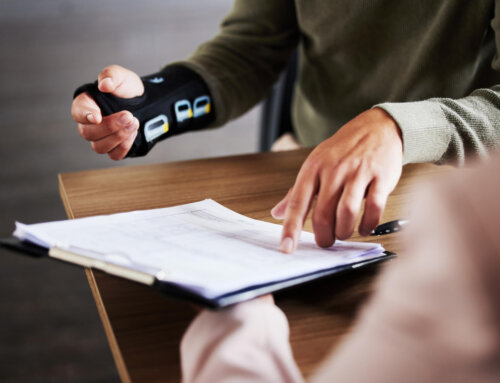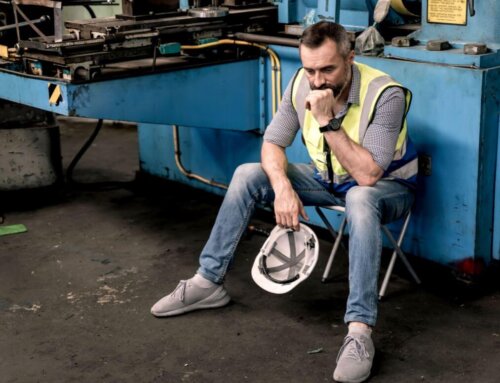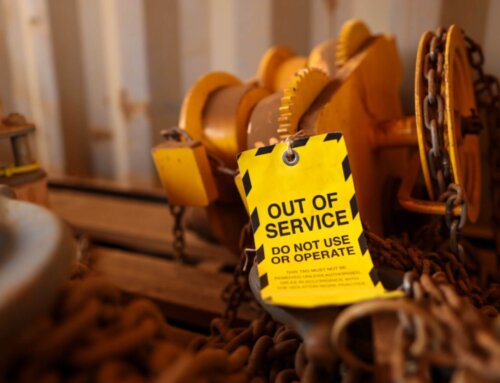At Mooneerams personal injury solicitors, we get asked to handle hundreds of personal injury claims every year for people who have been injured in accidents at work. We often wonder how many more people would make legitimate injury claims had they not, wrongly, believed they could not claim, for one reason or another.
One reason some people give for not taking legal advice about pursuing a workplace accident claim is they think they cannot claim because they failed to report the accident at work to their employer formally.
Thankfully, it is not the case.
Injured employees can still pursue an accident at work claim, even if they failed to report the accident immediately after it happened. It might make it a bit harder to pursue the claim, depending on the length of the delay in reporting the accident initially, but failing to report a work accident does not make a claim a nonstarter.
How should you report an accident at work?
If you are reading this article without being involved in a work accident (perhaps just out of pure interest), then the advice we now set out should stand you in good stead in the (we hope) unlikely event of your ever having an accident at work.
- If you get injured at work, and the accident was not your fault, the first thing on your mind should not be whether you can make a personal injury claim. Getting treatment for the injury you sustained in the accident will be your priority, starting with treatment from your company’s first aider and afterwards by receiving outside medical assistance from your GP or the A&E department of your nearest hospital.
- Reporting the accident should come second in your list of priorities. If you involve others in getting medical treatment, ask one or all of those involved to tell your immediate superior, your line manager or the company management what has happened. You can follow this up with a formal notification to your employer once you have had medical treatment. Should you then be detained at a hospital, at least your work colleagues will have put the employer on notice of the accident, your injury and where you are.
- If you are fit enough to remain on site after being injured, report the accident. If you are unsure how to report an accident at work, check out if there is a specified procedure in the company handbook. If so, follow the procedure. Failure to do so might get you into hot water, and you could find yourself facing a disciplinary!
If there is no obvious procedure specified, report the accident to your immediate superior or a company management member. Let them know:
- Date and time of the accident
- A brief note of what happened, e.g., slipped on a wet floor.
- Brief description of the injuries sustained.
- The kind of medical assistance you have received so far – company first aider, GP, A &E
- Follow up over the coming days, if necessary, to check the accident is noted in the company accident book. Unfortunately, some companies will try to avoid putting a record in the accident book. Often, this is no more than the company wanting to portray it has a good track record of its employees not having accidents.
Do not let them get away with it. Ask to see the accident book entry relating to your accident and injury. If they do not let you or keep fobbing you off, email them repeatedly until you see the record.
Certain types of accidents must be reported in the Accident Book and reported to the Health and Safety Executive (HSE). This type of report is known as a RIDDOR report. (See our page What are ‘RIDDOR Reportable’ accidents and injuries?) The employer has to report such matters to the relevant authority. It is not the employee’s duty to do this.
Why is it so important to report an accident at work to your employer?
- It might be a workplace disciplinary offence if you suffer injury because of an accident at work, but do not report the incident to your employer. If you fail to follow procedures set out in the company handbook or other company policy documents, you could also fall foul of the company rules.
- However, the most important reason for reporting the accident is a much simpler one. If you do not report the accident to your employer, they might deny any knowledge of your having an accident at all. If you then decide to make an accident at work claim against your employer, you may struggle to prove your claim.
- Whilst this will not necessarily mean your compensation claim will ultimately fail, it adds an extra layer of difficulty.
Here is what to do if you have had an accident at work but have not yet reported it.
a) Check your accident is not time-barred. There is a limitation period of three years from the date of the accident at work, within which you can make a personal injury claim for an injury sustained in the accident. If your claim has not started within the time limit, then it will fail.
b) Assuming your claim is not time-barred, ensure you report the accident adopting the procedure outlined above. It may be weeks, months or even longer since the accident happened. However, if you have decided to make a claim, then you need to report it. Do not let the first letter notifying your employer of the accident be a solicitor’s letter of claim. It does not look good if you have enquired of a solicitor about making an accident at work claim before you have reported the incident in question to your employer.
c) It was probably not a case of you deliberately failing to report the accident to your employer, straightaway. A lot happens following an accident in which you suffer injury, with getting medical assistance being the priority. So, do not feel embarrassed about reporting the accident late. Just do it now. Do it in person if you still work for the company. Then follow up with an email or a letter, sent by recorded delivery, to your employer.
d) If you were with or near to colleagues at work, ask if they will be witnesses for you as to when you had the accident. At the very least, it will be helpful to your case if they are prepared to say they saw the accident, saw you immediately after the accident when you were injured, or they helped you to get medical assistance.
e) If you went to see a doctor or visited A&E, ask them to confirm the date and time you visited either surgery or hospital. If you have yet to have a medical examination concerning the injuries you suffered, make sure you summarise how the accident happened and the date and time of the incident when you see the medical expert.
f) Consult an experienced personal injury solicitor with expertise in accident at work claims. It would be easier to persuade a personal injury solicitor to take on your claim on a No Win No Fee basis if you have already reported the accident to your employer, even if it was sometime after the accident. Personal injury solicitors only offer the benefit of No Win no fee accident at work claims on the basis there is a better than 50/50 prospect of winning the case. Whether or not the accident was reported to the employer will be one factor they consider when making this assessment.
Mooneerams solicitors are specialist accident at work claim solicitors with almost
twenty years ‘experience of handling personal injury claims of all types.
If you get injured in an employer’s liability accident, call us on
We handle most personal injury claims on a No Win, No Fee basis.
To find out more making Accident at Work Claims, see our Accidents at Work Q&A Guide









